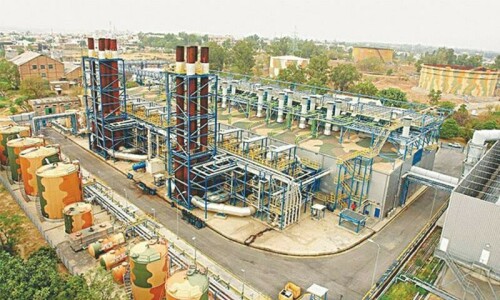Pakistan is the leading exporter of surgical instruments, but local manufacturers receive only 2pc, or $359m, of the $17bn global trade, as most of it is lost to outsourcing importers.
Who is to be blamed for these grossly unfair trade deals? It is the inability of the industry to develop international brands.
Basically, local producers are suppliers to international brands based in the US and Western Europe, who outsource manufacturing to artisans concentrated in Sialkot.
Some international brands are reported to have shut down manufacturing facilities in their home countries as they get the best products from Pakistan’s world class artisans.
Internationally, social movement of fair trade is initiated to help producers in developing countries get a fair value for products such as coffee, sugar, fruit juices etc. Why can’t a fair trade demand be raised for surgical instruments?
In Sialkot over 10,000 different medical instruments, covering all basic and surgical segments, are being manufactured. Over 99pc of production is centred at Sialkot.
The sector comprises of around 3,000 companies with the labour force ranging from (15-450) per unit, of which around 30 can be considered large units, and 150 as medium sized enterprises.
The industry produces on average over 170m pieces a year. Of the total production, over 95pc is exported, which includes 60pc of disposable and 40pc of reusable surgical instruments. A wide range of industries including steel, chemicals, and machine parts also have strong linkages with the surgical segment.
Some international brands are reported to have shut down manufacturing facilities in their home countries as they get the best products from Pakistani world class artisans
Top 10 buyers are the US, Germany, the UK, France, Italy, UAE, Japan, Brazil, Mexico, and Russia. America is the largest market for disposable instruments, while a majority of reusable instruments are exported to the EU.
Former Chairman Surgical Instruments Manufacturing Association Mr Jehangir Bajwa told Dawn that Pakistan is working as a vendor for other exporting countries. He said these countries sourced products to Sialkot and then stamped their logo on them for export to the world market.
“We can’t even directly export to Islamic countries because of the excessive registration procedure”, he said, “as lso the same products are landing in their markets from Germany and US under international brand names”.
The ministry of commerce is a silent spectator to this whole set of affairs of unfair trade practices. “We have no choice, but to provide products to these mediators at much lower prices”, Mr Bajwa said.
Ironically, the ministry of commerce has failed to help the sector in developing brands. In the previous trade policy, the government allocated funds for brand acquisition rather than development.
Mr Bajwa claims Sialkot caters to 90pc of the global demand. The government has also failed to secure direct market access for these products under its so-called preferential trade agreements. Some industrialists say Germany has closed down its own industries and is now outsourcing manufacturing to Sialkot.
New mediators are also emerging. Pakistan’s direct exports of surgical instruments to China and India are also on the rise. According to a study of the Sustainable Development Policy Institute, Pakistan’s exports of surgical products rose to $9.6m in 2014 from $7.6m a year earlier. The study indicates a huge potential exists for increasing direct exports of surgical instruments.
The goods outsourced for manufacturing in Sialkot by German and UAE based companies find their way into Indian markets. The US is the larger exporter of surgical instruments to India. Germany, China and Japan come after. There is a wide margin in import value of these products from Pakistan for re-export to India.
The surgical sector, according to industrialists, is facing several problems. These range from marketing to adoption of new technology. Marketing is a basic problem owing to a failure to develop local brands. Energy supply is another major handicap.
Neither industrialists nor the government allocates funds for R&D to innovate new products in order to stay updated with changing patterns in medical sciences. There is no training institute to train human resource. As 95pc of the surgical industry operates in the SME sector, there is a need for a common facility centre to reduce the cost of production.
Sialkot’s position as a leading exporter of surgical instruments may also come under threat from upcoming competition from China and Mexico. These countries not only have cheap labour, but also use superior technologically for innovation and better materials for manufacturing.
Published in Dawn, Business & Finance weekly, August 22nd, 2016













































